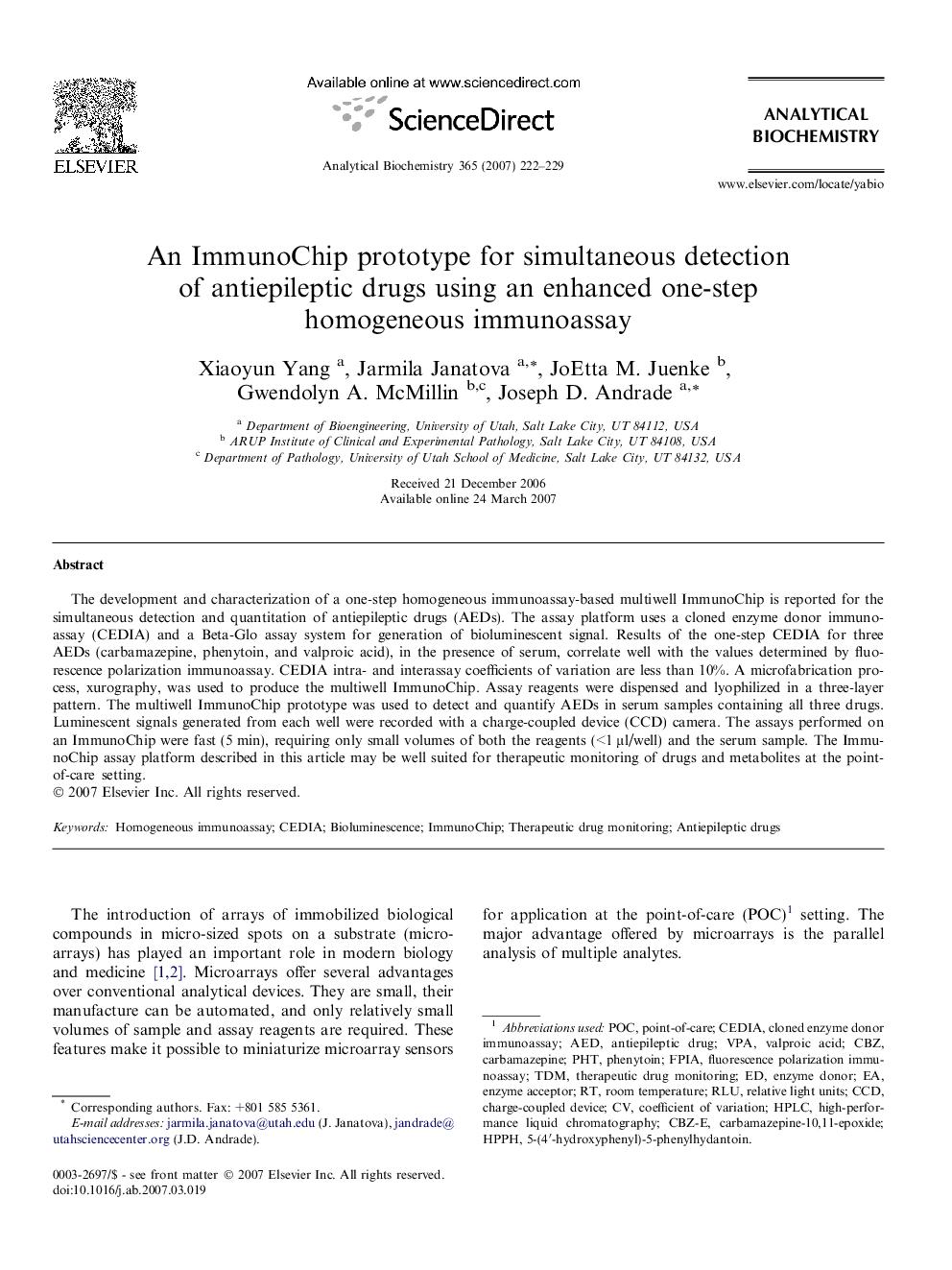| Article ID | Journal | Published Year | Pages | File Type |
|---|---|---|---|---|
| 1176577 | Analytical Biochemistry | 2007 | 8 Pages |
Abstract
The development and characterization of a one-step homogeneous immunoassay-based multiwell ImmunoChip is reported for the simultaneous detection and quantitation of antiepileptic drugs (AEDs). The assay platform uses a cloned enzyme donor immunoassay (CEDIA) and a Beta-Glo assay system for generation of bioluminescent signal. Results of the one-step CEDIA for three AEDs (carbamazepine, phenytoin, and valproic acid), in the presence of serum, correlate well with the values determined by fluorescence polarization immunoassay. CEDIA intra- and interassay coefficients of variation are less than 10%. A microfabrication process, xurography, was used to produce the multiwell ImmunoChip. Assay reagents were dispensed and lyophilized in a three-layer pattern. The multiwell ImmunoChip prototype was used to detect and quantify AEDs in serum samples containing all three drugs. Luminescent signals generated from each well were recorded with a charge-coupled device (CCD) camera. The assays performed on an ImmunoChip were fast (5 min), requiring only small volumes of both the reagents (<1 μl/well) and the serum sample. The ImmunoChip assay platform described in this article may be well suited for therapeutic monitoring of drugs and metabolites at the point-of-care setting.
Keywords
Related Topics
Physical Sciences and Engineering
Chemistry
Analytical Chemistry
Authors
Xiaoyun Yang, Jarmila Janatova, JoEtta M. Juenke, Gwendolyn A. McMillin, Joseph D. Andrade,
